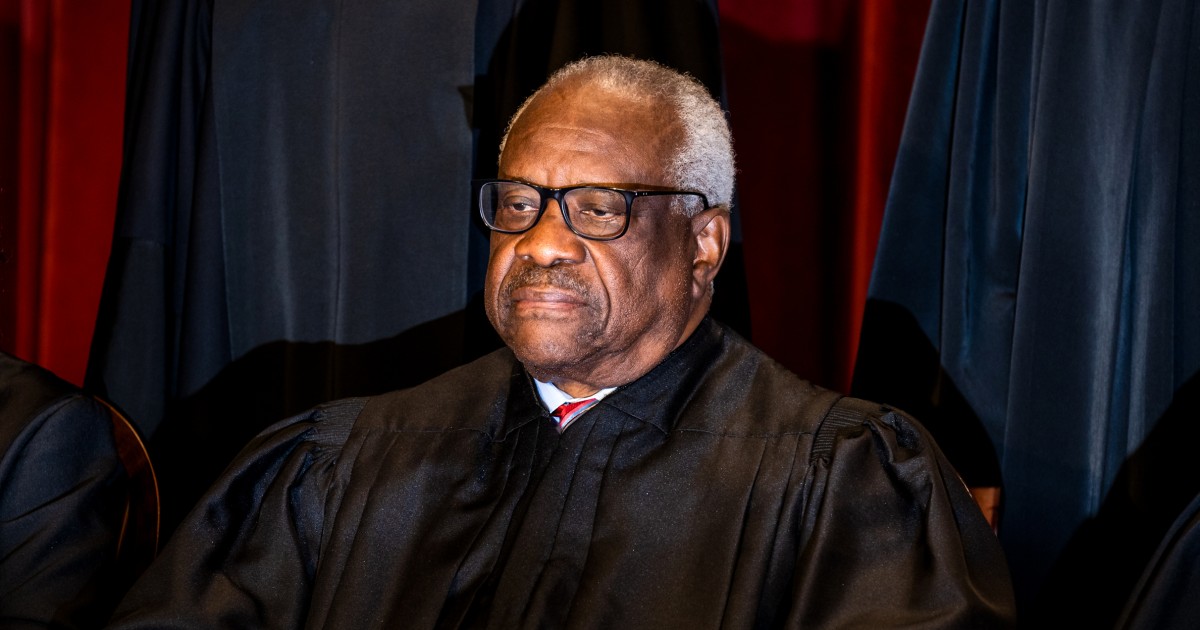The announcement was received by a tepid applause, those who opposed it saying that it does not take enough steps since there isn’t an enforcement mechanism.
The Supreme Court on Monday announced that it had formally adopted an updated code of conduct after allegations of ethics violations, but its impact will likely be minimal since justices are left to enforce it by themselves.
It issued a 14-page report that contained five codes of conduct regarding matters like the time when justices are required to be excused from their duties and what kinds of activities outside their jurisdiction they are allowed to participate in.
“The undersigned justices are promulgating this Code of Conduct to set out succinctly and gather in one place the ethics rules and principles that guide the conduct of the Members of the Court,” the justices wrote in the attached statement. The nine justices all agreed to sign the statement.
The vast majority of the guidelines outlined in the code aren’t in themselves brand new, the statement stated, however the absence of a code that is published “has led in recent years to the misunderstanding that the justices of this court, unlike all other jurists in this country, regard themselves as unrestricted by any ethics rules.”
The code, based upon the rules that judge judges in lower courts seems to be based upon a statement that justices issued in April stating that they “reaffirm and restate” their ethical principles -which did not manage to stop the criticism.
The code demands that justices “uphold the integrity and independence of the judiciary” and “avoid impropriety and the appearance of impropriety in all activities.”
The justices have been pressured to act since a string of reports have raised doubts about whether justices were abiding by the rules.
Democrats of the Senate Judiciary Committee have proposed legislation to impose the new ethics code to the justices lawmakers have said they’re being pressured to take action due to the justices’ inability to take action.
They were pleased with the announcement, however, they said it isn’t quite enough of what they’d like to have.
Senator. Dick Durbin, D-Ill. who chairs the committee, said that the Supreme Court’s decisions have been “important steps, but they fall short of what we could and should expect,” for example, in the way they leave too many decisions to the individual justices.
“For now, I will note that the court’s adoption of this code marks a step in the right direction,” said the judge.
The absence of a mention of the manner in which complaints regarding ethics violations were to be handled was a omission which senator. Sheldon Whitehouse, D-R.I. took advantage of.
“This is a long-overdue step by the justices, but a code of ethics is not binding unless there is a mechanism to investigate possible violations and enforce the rules,” the judge said in an announcement.
Whitehouse described”the “honor system” of individual justices’ handling of ethics hasn’t worked, Whitehouse added.
Gabe Roth, the executive director of the ethics Watchdog Fix the Court, had similar complaints.
“If the nine are going to release an ethics code with no enforcement mechanism and remain the only police of the nine, then how can the public trust they’re going to do anything more than simply cover for one another, ethics be damned?” He said in a statement.
Progressives were adamant about the court’s decision. Legal groups of the left, called The People’s Parity Project, called the ruling “nothing more than a symbolic gesture aimed at quieting the ever-growing concerns surrounding the unethical behavior of sitting justices.”
While Supreme Court justices follow some of the same guidelines that are enforced on lower judges, like the requirement to file annually financial reports on their finances, they’re not required to follow the codes of conduct applicable to other judges.
The latest scrutiny was brought on by an April story by ProPublica which reported that Justice Clarence Thomas had taken trips financed from Republican billionaire Harlan Crow without disclosing them. ProPublica also reported in June the fact that Justice Samuel Alito similarly failed to disclose the trip to Alaska in 2008.
This week this week, this week, the Senate Judiciary Committee had been scheduled to consider issuing subpoenas to Crow and conservative activist in the field of law Leonard Leo, but the vote was abruptly delayed.
In recent weeks, a few justices have expressed that they are in favor of the court adopting its own code of conduct. Alito was unsure if Congress has any legal power to impose a code on a distinct section of government.
Republicans are unhappy that accusations of ethics violations have focussed disproportionately upon conservative justices. They’ve stated that Democrats seek to discredit this Supreme Court because it has a conservative majority of 6-3 which has ruled on a number of cases that have angered liberals which included a decision to repeal the landmark case on abortion rights Roe v. Wade last year.
The main difference in the new code from the norms followed by judges of lower courts are on specific issues that pertain to Supreme Court. Supreme Court.
The rule’s explanation includes, for instance that the procedure for recusal in specific cases is designed to suit specific cases and the Supreme Court specifically. It’s because the court is comprised of only nine justices. Cases can’t be transferred to any other person if several justices have to retire.
In the end, even though justices must adhere to the usual rules for making decisions about whether or not they should abstain due to conflicts of interest. However, they are required to adhere to what courts call the “duty to sit” if it is at all possible.
The statement stated that chief justice John Roberts has directed that court employees should assist justices to comply with the new rules, for example by preparing an outline of the best methods.
Source: https://www.nbcnews.com/politics/supreme-court/supreme-court-code-of-conduct-rcna124951
